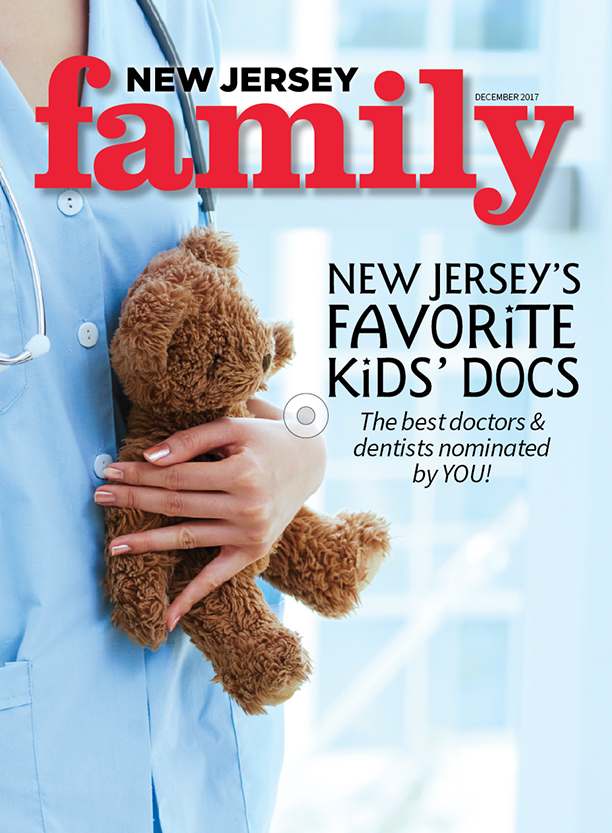Child & Pet Friendly
Children LOVE visiting award winning “New Jerseys’ Favorite Kids Doctor”
Dr. Christine Garvey at Allergy Breakthrough Center
Many children and animals are affected by allergy symptoms. ABC methods allow us to identify stimuli and/or substances and to treat the symptoms associated with allergies and sensitivities.
This holistic approach is safe, non-invasive, painless, requires NO needles, NO skin-prick or scratch tests, NO medications and NO avoidance. We treat children of all ages, including infants.
In most instances AAT is Dr. Garvey’s recommendation to determine if the related symptoms are due to the body’s response to an allergy or sensitivity. But if there is a underlying cause contributing to the pool of symptom(s) or condition(s) Dr. Garvey will take a functional medicine approach. If there is a fungal, mold, yeast, bacterial, parasitic infection or other internal underlying inflammation or dysfunction we need to address to help the body heal. Dr. Garvey may need to order additional laboratory testing and or recommend treatment to address any internal health conditions. At anytime we can order blood lab testing to assess IgG and IgE allergies to hundreds of food and environmental substances.
The Functional approach determines how and why a condition/symptom occurs and restores health by addressing the root causes of disease. The functional medicine model is an individualized, patient-centered, science-based approach that empowers patients and their Doctor to work together to address the underlying causes of disease and promote optimal wellness. It requires a detailed understanding of each patient’s history, lifestyle, and biochemical factors and leverages that data to customize personal treatment plans that lead to improved patient outcomes. By addressing root causes, rather than just symptoms, Doctor Garvey often finds many conditions that result from one cause, or likewise, one condition that has many different causes. As a result, functional medicine’s personalized treatment targets the specific manifestations of disease in each individual so you can live the life you want.
A little pet fact: Did you know that Allergies are #1 reason for Pet visits to the Veterinarian. According to Nationwide pet insurance, skin allergies topped the list for reasons policyholders took their dogs to the veterinarian.
SKIN:
Skin conditions in children: Eczema, atopic dermatitis, contact dermatitis, hives (Urticaria), rashes, and psoriasis.
Common skin symptoms: Itchy, raised, red, inflamed, crusting, flaking, weeping, oozing, dry, irritated, swollen, bumpy, prickly and blistering.
Can eczema be related to food?
Food has been found to be a consistent factor in thousands of cases of eczema. My eczema was completely food related. With the AAT and MRT, muscle response testing, we determine which foods the child is reacting to and can provide a treatment during their first visit. Common foods that contribute to their symptoms are wheat, dairy, sugar, vegetables, spices, etc…
RESPIRATORY:
Respiratory conditions in children: Pet allergies, seasonal allergies, hay fever, asthma, allergy induced asthma, allergic rhinitis, sinusitis and sinus headaches.
Common respiratory symptoms: Asthma, cough, night cough, tight chest, shortness of breath, wheezing, sneezing, itchy throat, sore throat, runny nose, itchy nose, red eyes and hay fever.
Does your child have allergies?
- Dark circles under the eyes
- Rubbing eyes
- Rubbing nose
- Rubbing ears
- Red eyes
- Sneezing
- Runny nose
- Symptoms worse in the morning
- Symptoms worse during the night
- Headaches
- Difficulty falling asleep or staying asleep
DIGESTIVE:
Common digestive symptoms: Stomach aches, cramping, pain, bloated abdomen, constipation, diarrhea, incomplete bowel movements, nausea, Colic, gas, reflux, bad breath, vomiting and heartburn.
Does your child have food allergies?
- Complains of tummy aches or pain after eating or often
- Tummy is round and firm, “bloating”
- Loose stools, especially after eating
- Irritable after eating or increased irritability during the day
- Hyperactivity or mood disturbances after eating or during the day
- Headaches
- Difficulty falling asleep or staying asleep
- Dark circles under the eyes
- Skin rashes
BEHAVIOR:
Behavioral conditions in children: Many children display some common symptoms associated with food sensitivities. Your child does not have to be diagnosed with a behavioral disorder to benefit from these treatments.
My goal is to help as many children possible. I want children to be happy and free and to function at their optimum levels. The ability to be free and eat and touch and breathe without an unnecessary overreaction is my mission. We have seen consistent clinical results in this area by treating food substances as well as airborne and stimuli that were contributing to various behavioral symptoms.
We address symptoms associated with conditions like mood changes, ADD, ADHD and other behavioral conditions; however, we do not treat the condition directly.
Behavioral conditions: Attention Deficit Disorder, Attention Deficit Hyperactivity Disorder, Oppositional Defiant Disorder, etc.
Common behavioral symptoms:
- Difficulty focusing, listening and concentrating
- Listening and following direction or sitting still
- Defiant, irritable, sleepy, fatigue
- Hyperactivity, moodiness
- Bedwetting, temper tantrums
According to the CDC:
Eight foods or food groups account for 90% of serious allergic reactions in the United States: milk, eggs, fish, crustacean shellfish, wheat, soy, peanuts, and tree nuts.
Symptoms of Food Allergy in Children (According to the CDC):
Symptoms Communicated by Children with Food Allergies
- It feels like something is poking my tongue.
- My tongue (or mouth) is tingling (or burning).
- My tongue (or mouth) itches.
- My tongue feels like there is hair on it.
- My mouth feels funny.
- There’s a frog in my throat; there’s something stuck in my throat.
- My tongue feels full (or heavy).
- My lips feel tight.
- It feels like there are bugs in there (to describe itchy ears).
- It (my throat) feels thick.
- It feels like a bump is on the back of my tongue (throat).
The severity and symptoms of allergic reactions to food can be different between individuals, and can also be different for one person over time. Anaphylaxis is a sudden and severe allergic reaction that may cause death. Not all allergic reactions will develop into anaphylaxis. AAT does not treat cases of anaphylaxis.



